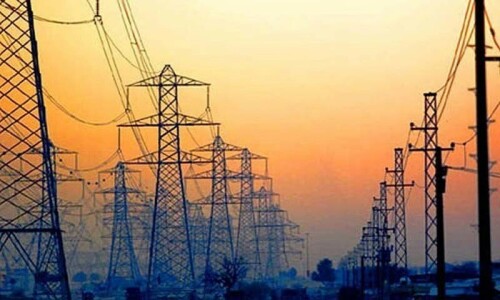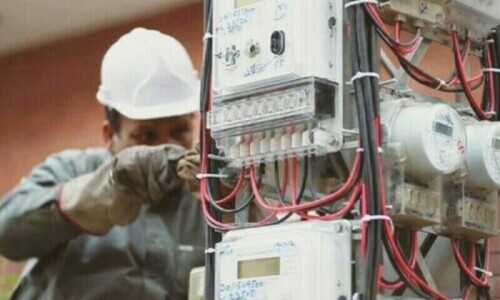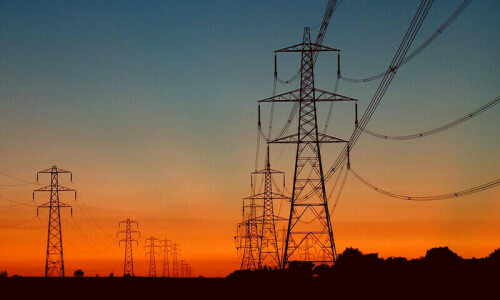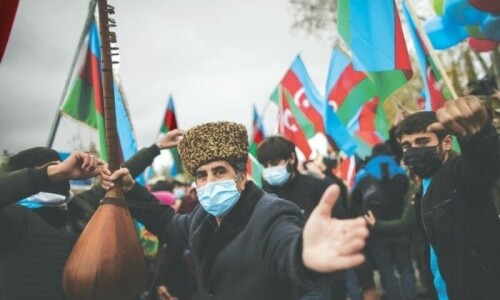KARACHI: As a last resort to save the economy, the Federation of Pakistan Chambers of Commerce and Industry (FPCCI) on Tuesday announced that it would file a case in the Supreme Court against the unbearable capacity charges being paid to independent power producers (IPPs).
FPCCI Acting President Abdul Mohamin Khan, in a statement issued on Tuesday, said despite repeated and unrelenting expressions of its concerns and apprehensions — loud and clear — regarding IPPs’ capacity charges, the business community is still not being taken on board for the consultative process to resolve the issue as soon as possible despite being the primary stakeholder of the issue.
However, M. Abdul Aleem, Secretary General and Chief Executive Officer of Overseas Investors Chambers of Commerce and Industry (OICCI), told Dawn that “we always follow logical discussion on complicated and sensitive issues. Court action is not part of our strategy unless there is a blatant violation of our rights or commitment, policy or contract”.
Pakistan Business Council CEO Ehsan Malik advocates regionally competitive industrial power tariffs to promote employment, boost exports, and make manufacturing for the domestic market more affordable.
OICCI distances itself from litigation, advocates for talks
He called for the removal of cross-subsidies, reduction in reliance on expensive imported fuel, greater use of cheaper renewable energy through south/north transmission lines, removing line losses, and addressing theft and recovery issues of Discos.
He also proposed reducing tariffs to generate demand to use the spare generation capacity, converting coal plants to local coal, extending the loan tenor to the useful life of assets, and seeking the conversion of CPEC loans from commercial to G-to-G terms. In aggregate, these steps would amount to substantial savings in foreign exchange and reduced tariffs.
So far as capacity payments are concerned, Mr Ehsan said the government renegotiated the terms with local IPPs a few years ago, though it has yet to do so for the CPEC units. It is important to understand that 80pc of capacity payments are used to service the debt that the IPPs took when establishing their plants.
He said this debt is mainly in foreign currency. Hence the linkage of payments to the exchange rate since no forward cover was then, or is now, available. Any legal or other intervention that prevents the servicing of these loans by IPPs would amount to a sovereign default and trigger a wider chain reaction on Pakistan’s external and domestic debts.
It would also deter local and foreign investment, leading to many international arbitration cases. That would amount to another Reko Diq episode, which Pakistan can least afford.
However, the FPCCI acting president asked the government to conduct forensic audits of IPPs, abolish capacity charges forthwith and renegotiate power purchase agreements fairly and transparently.
He maintained that the country had paid approximately Rs2,000 billion in capacity charges to these IPPs in FY24, which would further steeply rise to Rs2,700-2,800bn in the current fiscal year.
He added that guarantees to IPPs indexed to the US dollar mean any depreciation of the Pakistani rupee increases returns for IPPs, adding a debilitating financial burden on the government and the public alike.
He said the apex chamber demanded a comprehensive review of IPP agreements, price re-evaluation within legal bounds and improved oversight to prevent over-invoicing. Examining the energy infrastructure for clauses related to misinformation and fraud is also required. The federal government must devise a strategy to deal with IPPs and ensure affordable electricity prices for the industry in the national interest, Mohamin proposed.
Published in Dawn, July 24th, 2024















































